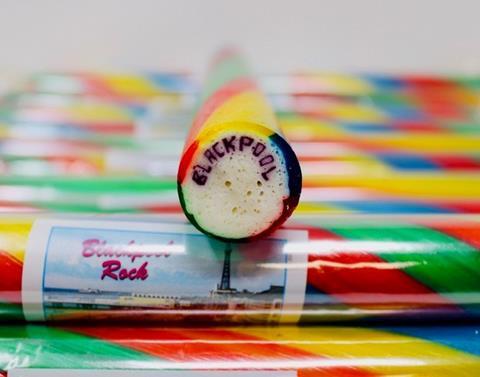
Traditional rock making is at a “critical juncture” with an influx of cheap imports from China “undercutting domestic producers and eroding consumer confidence in locally-made goods”, leading producers of the confectionery have warned.
In a letter sent to MPs, British manufacturers said the future of the hard, stick-shaped boiled sugar sweets was “under severe threat” from Chinese imports purporting to be made in the UK.
“The quality and integrity of British confectionery is unparalleled, built upon generations of craftsmanship and expertise,” the producers wrote. “However, in recent months, inferior products have flooded our market.”
The rise of these “cheap Chinese imported imitations” posed “a grave and immediate challenge to our industry, jeopardising the livelihoods of our employees and the sustainability of our business”, they added.
In Blackpool and the surrounding areas – where rock making is said to have originated in the late 19th century – eight manufacturers had “regrettably been forced to cease trading” in recent years, the producers said.
Now, just nine remained, meaning there were now “approximately only 30 people in the UK” with the skills needed to ‘letter’ sticks of rock, they added.
The producers, which include Stanton & Novelty, McAdams Confectionery, Marton Rock, Rainbow Candies and Baxter Brothers Confectionery, called on their respective local MPs to “take a stand on behalf of British confectionery”.
“Preserving the heritage and tradition of British confectionery is not only essential for our economy but also for maintaining our cultural identity and pride,” they said. “By championing the cause of local producers, you will not only support businesses like ours but also uphold the values of fairness, quality, and authenticity that define British craftsmanship.”
David Thorp, director of Stanton & Novelty, said the coalition was “about to start the process” of applying for UK geographical indication (GI) status for rock under the government’s protected food names (PFN) scheme.
This, he claimed, would protect “the name ‘rock sticks’ or ‘Blackpool rock’ so that it can only be made in the UK”.



















No comments yet